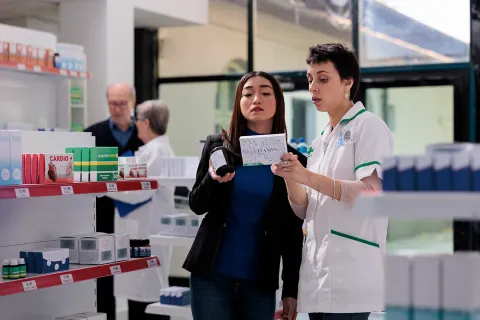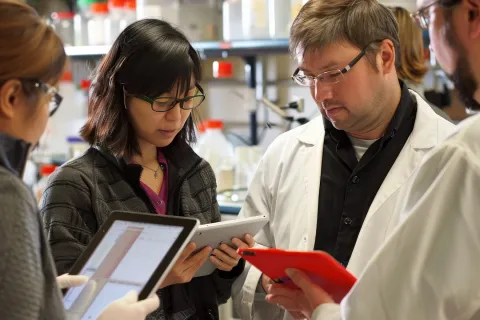
According to the World Health Organization (WHO), adverse drug reactions (ADRs) rank among the top 10 leading causes of morbidity and mortality globally. However, a study published in 2022 revealed that less than 10% of ADRs are reported in developing countries, highlighting a substantial gap in pharmacovigilance practices. This blog delves into untapped information about the current state of pharmacovigilance knowledge, attitudes, and practices in developing countries, emphasizing lesser-known challenges and innovative solutions that can bridge the gap in drug safety.
Knowledge of Pharmacovigilance
In a world where healthcare is increasingly reliant on both modern and traditional medicine, two critical challenges persist: the integration of pharmacovigilance systems with traditional and modern medicine practices and the lack of educational initiatives in remote areas.
- Integration with Traditional and modern Medicine: In many developing countries, traditional medicine plays a significant role in healthcare, apart from modern medicine. However, the integration of pharmacovigilance systems with both these medicine practices is often overlooked.
- Educational Initiatives in Remote Areas: While urban centers might have better access to pharmacovigilance training, remote and rural areas often lag. Innovative educational initiatives, such as mobile health clinics equipped with pharmacovigilance training tools, can help bridge this gap.
- Lack of Robust Regulations: The absence of stringent and comprehensive pharmacovigilance regulations in many regions is a significant barrier to effective drug safety monitoring. Without robust regulatory frameworks, the enforcement of pharmacovigilance practices remains weak, leading to inconsistent reporting standards and inadequate responses to ADRs. Strengthening regulations and ensuring their strict implementation is crucial for establishing a reliable pharmacovigilance system that protects patient health and fosters trust in healthcare systems.
What are the possible gaps here?
- Insufficient Training: Traditional and Modern medicine practitioners usually lack formal training in pharmacovigilance in developing countries leaving them ill-equipped to recognize and report ADRs, leading to underreporting of ADRs related to herbal and traditional medicines.
- Limited Access to Information: There is often a lack of access to updated information on drug safety, innovative tools, and also real-time national pharmacovigilance guidelines. This in turn leads to system errors and creates a challenge in reporting.
Attitude Toward Pharmacovigilance
the attitude toward pharmacovigilance, the monitoring and reporting of adverse drug reactions (ADRs), is influenced by cultural beliefs, psychological barriers, and current attitudinal barriers.
- Cultural Beliefs and Misconceptions: Cultural beliefs and misconceptions about drug safety and ADRs can significantly influence healthcare professionals' attitudes toward pharmacovigilance. For instance, in some cultures, adverse reactions might be attributed to supernatural causes rather than medication issues, leading to reluctance to report.
- Psychological Barriers: Fear of blame and job security concerns are profound psychological barriers that deter healthcare professionals from reporting ADRs. Addressing these fears through anonymous reporting systems and protective policies is crucial.
Current Attitudinal Barriers
- Perceived Importance: Some healthcare providers may not fully appreciate the importance of pharmacovigilance, viewing it as an additional burden rather than an integral part of patient care.
- Fear of Legal Repercussions: Concerns about legal consequences or professional repercussions can deter healthcare professionals from reporting ADRs.
Practice of Pharmacovigilance
- Technology and Data Analytics: The use of advanced technology and data analytics in pharmacovigilance practice is underutilized in many developing countries. Leveraging big data analytics and machine learning can enhance the detection and reporting of ADRs, even in resource-constrained settings.
- Community Engagement: Involving community health workers and local organizations in pharmacovigilance can improve reporting rates and awareness. These community-based approaches can help capture ADR data from populations that are otherwise hard to reach.
Operational Challenges
- Underreporting of ADRs: Due to knowledge gaps, attitudinal barriers, and logistical issues, ADRs are often underreported. This limits the data available for assessing drug safety.
- Inadequate Reporting Systems: Many developing countries lack robust, user-friendly ADR reporting systems, making it difficult for healthcare providers to submit reports efficiently.
Steps to Improve Pharmacovigilance in Developing Countries
- Mobile Health Technology: Deploying mobile health (mHealth) technology can facilitate real-time ADR reporting and education in remote areas. Mobile apps designed for easy reporting can empower healthcare workers and patients alike.
- Public-Private Partnerships: Establishing partnerships between governments, non-governmental organizations, and private sector entities can mobilize resources and expertise to strengthen pharmacovigilance systems.
- Education and Training: Integrating comprehensive pharmacovigilance training into medical and pharmacy curriculum and providing ongoing professional development opportunities for healthcare providers.
- Public Awareness Campaigns: Educating the public about the importance of reporting ADRs to create a culture of safety and accountability.
Conclusion
Improving pharmacovigilance in developing countries is essential for ensuring drug safety and efficacy, protecting public health, and fostering trust in healthcare systems. By addressing knowledge gaps, changing attitudes, and enhancing practices, developing countries can build robust pharmacovigilance systems that contribute to global drug safety efforts. Collaborative efforts, both locally and internationally, will be key to overcoming the challenges and achieving these goals. A seasoned regulatory partner like Freyr can assist in traditional as well as Innovative approaches, such as integrating traditional medicine, leveraging technology, and engaging communities, holding the potential to transform pharmacovigilance practices in developing regions.
Author: Sonal Gadekar









